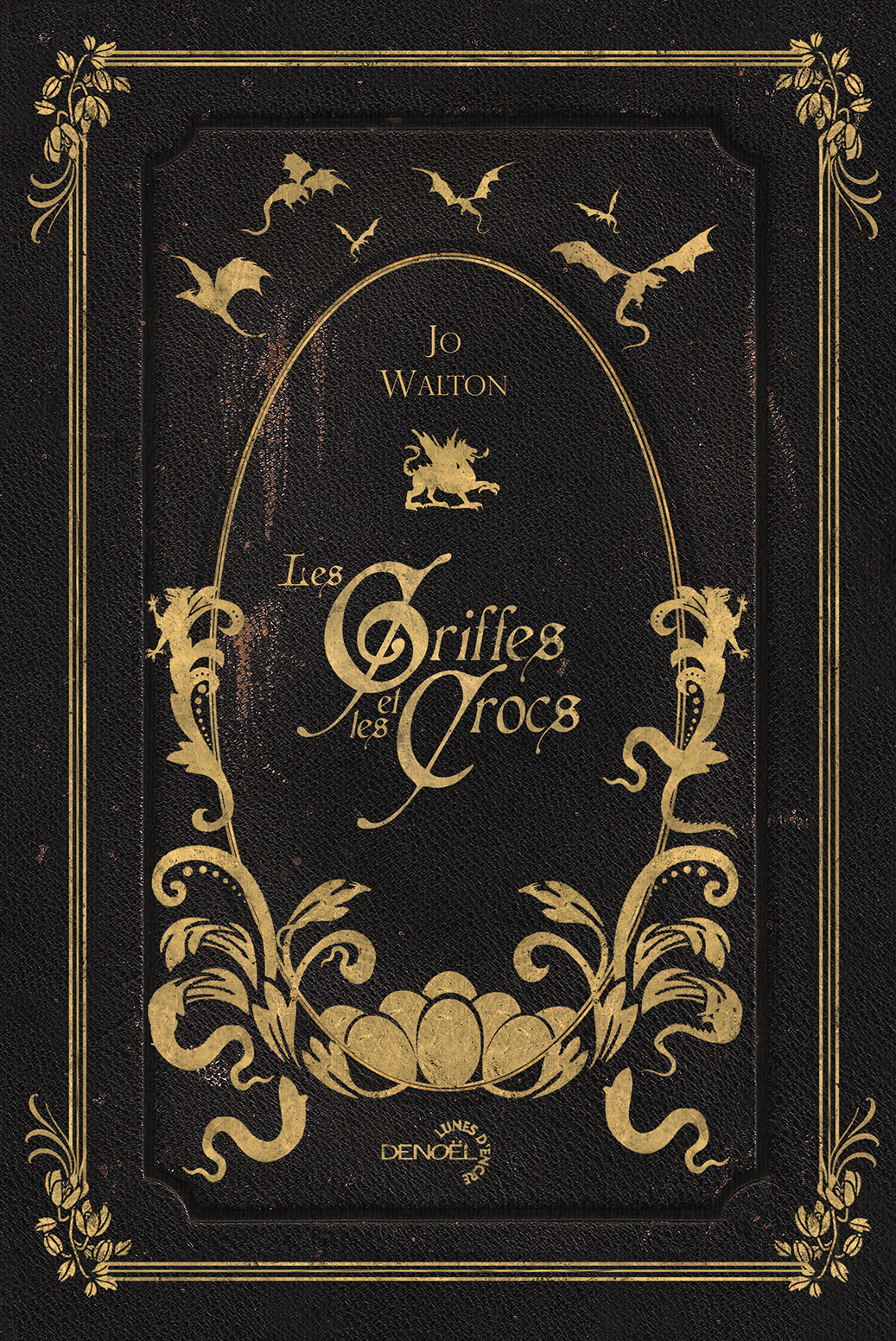Generally if something in the world causes somebody to think of something I have written, it’s delightful. It means I’ve succeeded in encapsulating something, in finding a way of describing something that’s useful to somebody. Something I’ve written has helped the world make more sense.
I remember when I was a teenager and somebody I didn’t care for was in love with me while I was in love with somebody who was in love with somebody else. This reminded me of something at the time, and I realised it was Dodie Smith’s I Capture the Castle and sat down and I re-read it and cheered myself up instead of continuing to be miserable. (Some people call this “escapism”. They’re idiots.) I eventually got over being in love with that person. (I wonder where he is now, and whether he remembers I exist? Probably not actually. I hope he’s happy. It’s so weird to think he’s my age, when he’ll always be sixteen and golden in my head.) I got over it, as I said, and the person who was briefly in love with me (hi if you’re reading!) got over it even more quickly, but I still think the description of that dilemma in I Capture the Castle is absolutely spot on. And I still have the book and I still read it. So if my writing does that recognition thing with something, anything, for somebody, it feels great.
Usually.
This summer, my French editor emailed me to say that the Small Change books were referenced in Le Parisien and Aujourd’hui — major French papers. And what they were saying was that these books were essential and unmissable if you wanted to understand Brexit. If you wanted to understand how Britain could be insular and inturned and petty and racism and fascist. I soon heard that German papers were saying the same thing.
And now I am seeing people saying that the situation with Trump being elected is reminding them of Farthing.
It’s good, really, to have given people a way to think about something. We learn through stories, and fiction can often really help because it is shaped and simplified and given emotional context in the way history often isn’t. And alternate history can be particularly great for teaching historical lessons, because we already know what really happened, and in alternate history events can come around a corner and surprise you. So it’s good… but…
I just wish that thing wasn’t fascism.
If there’s any book I wrote that I wish was obsolete and that people would never be reminded of in any real world context, it’s Farthing. “Gosh, that’s dated,” I wish people would say about it. It wasn’t supposed to be a prediction. It wasn’t supposed to be an instruction manual. (The actual specifics of the post-Brexit shuffle and May etc really are scarily like what I have in the book.)
People who don’t read Science Fiction imagine that it predicts the future. People who read it know that it doesn’t, that while Octavia Butler might have predicted a demogogue with the slogan “Make America Great Again” as part of a dystopic background, but that doesn’t mean we’re living in the world of Parable of the Sower. What SF actually does for its readers is let them know that the future won’t be the same as the present. It doesn’t prepare you for one future, it prepares you by giving you multiple futures for the unexpected weirdness that lies ahead and will be the one and only real now by the time we’re living in it. It’s a strange world. But it’s always a strange world. And we don’t know the future, and nobody ever did, but we know it won’t be the same as now or the way we imagine.
Just as SF extends trends in the present, so things in the real now do recall for us things in SF, like Butler’s slogan. Post-Brexit, an MEP from Luzemburg proposed that EU citizenship could be given to individual British people who didn’t want to give that up. And as well as thinking “Please, please, please…” I thought that this was like a step towards the Hive system in Ada Palmer’s Too Like the Lightning where a very different EU is part of the power system in the future and where citizenship in anything is by opting in.
We’re never going to get that exact world with its flying cars and religious censorship, no more than we have Heinlein’s Martians or Cherryh’s spacestations. But just as I was prepared for iphones by a Heinlein character leaving his switched off in his bag so his mom couldn’t call and a Brunner character using the map on his until it goes dead, bunches of things I’m reading in today’s SF will be doing the same thing for me tomorrow.
But not fascism, OK?
I guess that means I’m past grief and denial and into bargaining.
On a more cheerful note. Fiction can teach us wrong lessons. One of the things we see in fiction is evil being much more competent and efficient than it ever is in reality. Some people think evil isn’t real. It is. Auden, writing in 1936, said:
“Maps can really point to places
Where life is evil now.
Nanking. Dachau.”
and he didn’t know the half of it with Dachau, but it broke my heart reading that in 1981 and realising that he even knew half of it. One of the things I wanted to do with the Small Change books is look at the real evil there and answer the question of how people came to do it, people, not monsters. How do good people do evil things? It’s so difficult to understand. How did actual women hear Trump saying “grab them by the pussy” and still move their actual hands on a ballot paper to vote for him?
I have been fortunate in not knowing all that many evil people, so I tend to base a lot of them on my mother. Some people never knew any evil people at all and so they can’t write about them. McCaffrey would be an example. And the evil dark lords in some fantasy novels are laughable. You know what, it’s amazingly wonderful that we live in a world where some people can believe that. Go them. I’d like to spread that privilege Anne McCaffrey enjoyed more widely, not take it away from her. But right now. Well. Onward and upward.
In Farthing, I gave Lucy’s evil mother a really efficient and sane secretary who loved her, to keep her pointing in the right direction, as my own evil mother never did. In Among Others where the mother is a lot closer to my actual mother, I had Mori quote Tokien “Oft evil will doth evil mar” and said you can’t count on it, but it does often happen. If you learn from books how evil is omnicomptent that’s because it makes for better shaped stories. In reality Tolkien was totally right about evil will screwing itself up a lot of the time. Evil isn’t any more competent than we are, and often less so because of a greater tendency to shoot itself in the foot or betray long term for short term gains. It can be defeated. And the good people doing evil things, sometimes they need to hear that this isn’t the end and they still have souls and there is a way from here to there.
There is a tendency also found in fiction to embrace despair and cynicism because it’s easier, what I called in yesterday’s poem “the soft temptations of despair”. People like the tragic ends of Farthing and Ha’Penny more than (spoilers!) the positive end of Half a Crown maybe because I didn’t do it as well, and maybe I didn’t because I was going uphill against the weight of narrative expectation and that’s hard. But it’s how fascism ended in Spain, King Juan Carlos did just what I had the Queen do in the book.
So if Farthing is helping you understand Brexit, or Trump, or Fascism, good, and I’m so sorry you need to. And it’s in print, and the sequels are, in the US and the UK and France and Germany*, if you wanted to give it to people who it might help. It could make a great Christmas present for your challenging relatives, especially as it looks relatively innocuous. It’s a mystery novel. An alternate history mystery. Not any kind of propaganda. And Ha’Penny won the Prometheus award. In my acceptance speech I said “I’m a cheerful positive kind of person. That’s why I wrote these books.”
(* It has also been published in Japanese, Spanish and Hungarian, but I don’t know the in print status or availability in those languages.)



